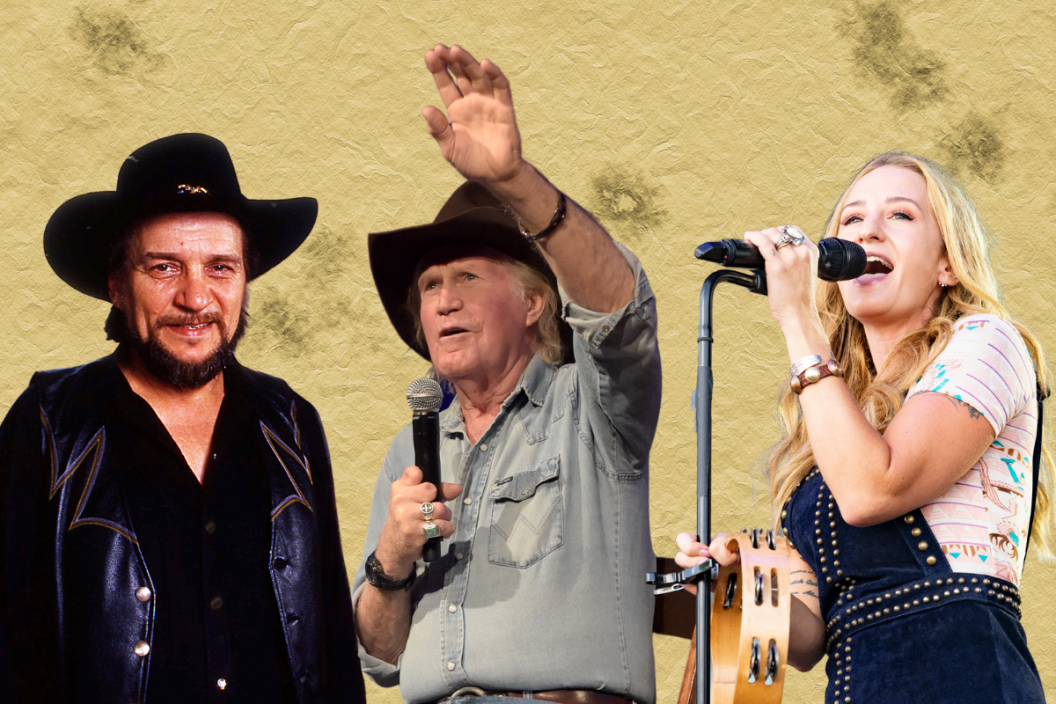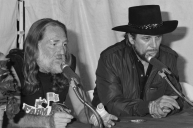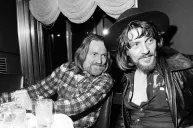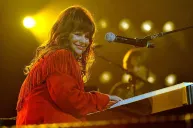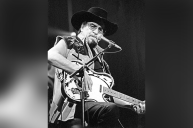What is outlaw country, anyway? It's a common question with no clear answer. That's a frustrating truth on the surface, but once you weigh why the concept is fenceless, it makes sense. Better yet, it's exciting to delve into music that's continually unpredictable and hard to categorize.
Videos by Wide Open Country
In one way or another, the songs and artists we could comfortably label as outlaw challenge music industry expectations. In every era of country music's 100-year history, big labels have found what works, sonically and thematically, and pushed rising stars into fitting the mold of the moment. Along the way, some free spirits sang songs that, despite reflecting real life, went against mainstream country music's squeaky-clean, nostalgia-based message. After the rise of rock 'n' roll, others refused to stick with the polished Nashville Sound and flavored their own take on country with other styles-- a mindset that set apart the two artists most associated with outlaw country, Waylon Jennings and Willie Nelson.
The spirit of independence that swept corners of the Nashville and Austin music scenes in the '70s spread elsewhere, setting up one of the more compelling time periods in storytelling-based popular music. This never grew too stagnant, in large part because to this day, the outlaw country roadmap demands individualism-- the best way to be like Jennings or Nelson is to purposefully not copy them too much and bring your own spin on country, rock and folk traditions to the table. This continues to empower every Americana notable or country non-conformist with an independent streak and impress the hungry fanbases of Cody Jinks, Zach Bryan, Margo Price and others that've made the system work for them without sacrificing their individuality.
Read on for 15 songs that back up this loose notion about what outlaw country is. Of course, it skips a lot, because it'd take a list of hundreds to be anywhere near thorough. We try not to be too obvious, skipping over Jennings and Nelson's individual and collaborative work and barely delving into what gets lauded nowadays for keeping their rebellious spirit alive.
"Single Girl, Married Girl," The Carter Family (1928)
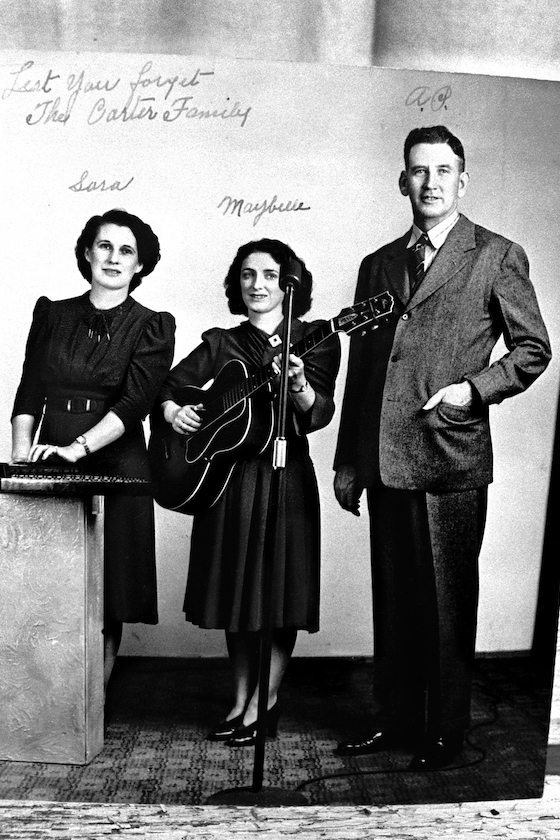
Robert Alexander/Archive Photos/Getty Images
If your definition focuses more on shattering social expectations in song than challenging music business norms, you can trace examples of outlaw attitudes back to country music's birth. Though it hardly seems subversive nearly 100 years later, Sara Carter singing lead vocals on a song that considers the virtue of unwed women surely caught a patriarchal society -- even more so than now -- off guard. Listen here.
"It Wasn't God Who Made Honky Tonk Angels," Kitty Wells (1952)
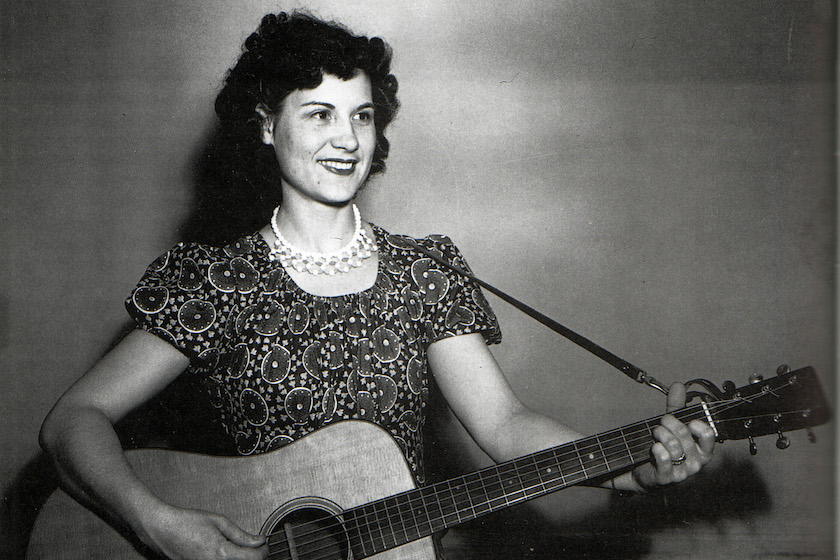
GAB Archive/Redferns
In the same year that Hank Thompson's No. 1 country hit "Wild Side of Life" told of a man who blamed his infidelity on his wife's neglectful ways, Kitty Wells countered with a much different point of view. "It Wasn't God Who Made Honky Tonk Angels" became the first No. 1 country song sung solo by a woman, proving that a broad audience can and sometimes will accept counters to the status quo. Listen here.
"The Ballad of Ira Hayes," Johnny Cash (Bitter Tears, 1961)
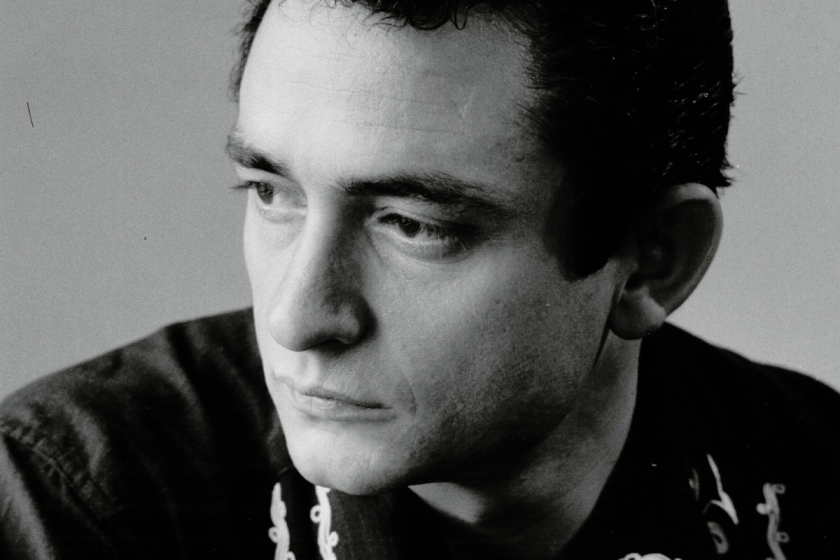
Michael Ochs Archives/Getty Images
Before the term "outlaw" was ever uttered by discontented country listeners, Johnny Cash used his platform to spread a socially-conscious message penned by folk balladeer Peter La Farge. Ira Hayes was Native American from the Gila River Indian Community in Arizona and one of the US Marines that iconically raised the American flag at Iwo Jima. Yet as the song tells, fellow Americans ultimately abandoned Hayes despite his sacrifices. It was one of the first -- and remained one of the best -- examples of Cash's willingness to provide a voice for the voiceless. Listen here.
"You Ain't Goin' Nowhere," The Byrds (Sweetheart of the Rodeo, 1968)
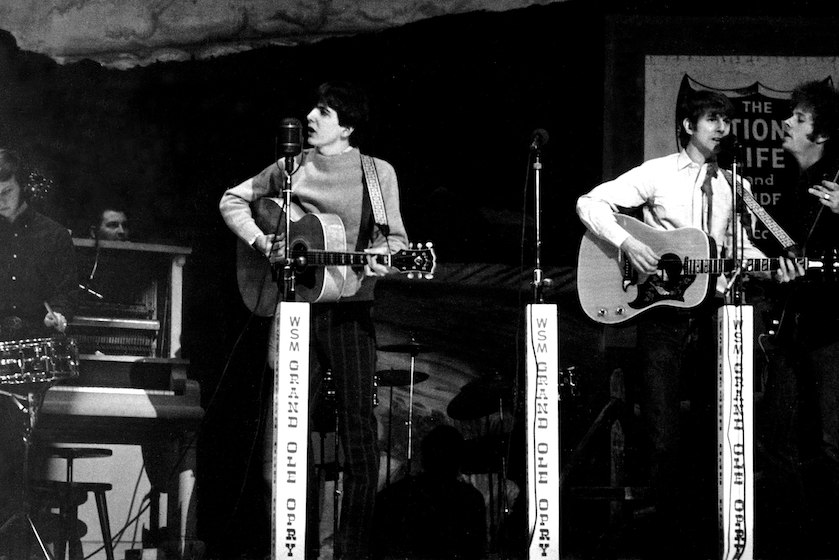
Michael Ochs Archives/Getty Images
Much of the earliest music labeled as outlaw sits at the intersection of hard country and the counterculture. The Byrds' flight landed ahead of schedule when short-term member Gram Parsons made a longterm impact on popular culture with this delicious blend of the era's folk-rock (it's a Bob Dylan cover) and Bakersfield-style country. Listen here.
"Harlan County," Jim Ford (Harlan County, 1969)
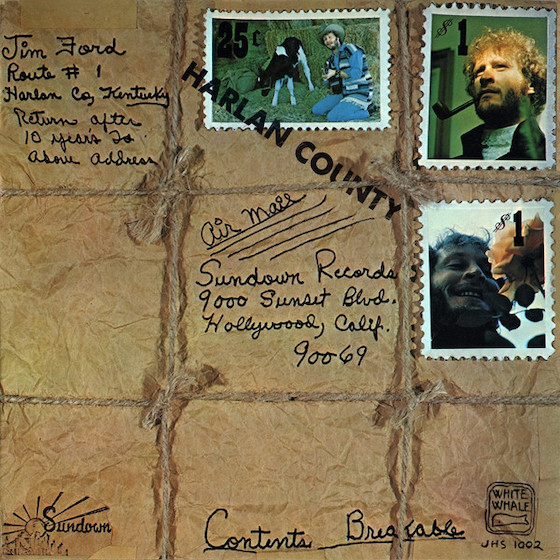
Current acts likened to the '70s notables below typically operate outside of the major label machine and find an audience under the broad umbrella of Americana. This independent spirit is nothing new, with such outsiders as Jim Ford crafting their own takes on country --visions divorced from Nashville or West Coast trends-- as far back as the '60s. Listen here.
"Why You Been Gone So Long," Jessi Colter (A Country Star is Born, 1970)
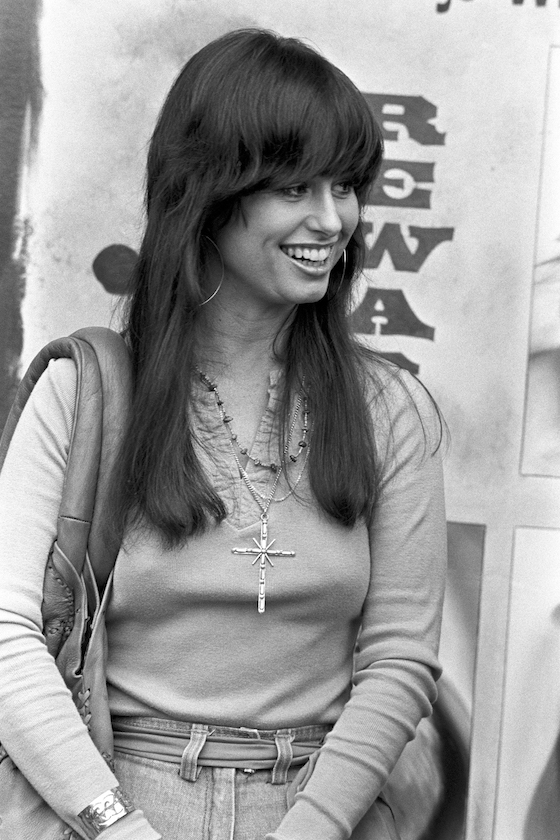
Tom Hill/WireImage
Jessi Colter often gets treated as a side note in both Jennings' career and the outlaw country discourse at large. Yet instead of being a secondary character in this story, she very much played a leading role. Beyond creating norms-shattering art of her own on a high level, she's square in the center of an overlooked talking point: without Colter's time around the West Coast side of the music business with first husband Duane Eddy, would the outlaw pursuit in Nashville have sounded quite the same? Listen here.
"Gettin' By, High and Strange," Kris Kristofferson (Border Lord, 1972)
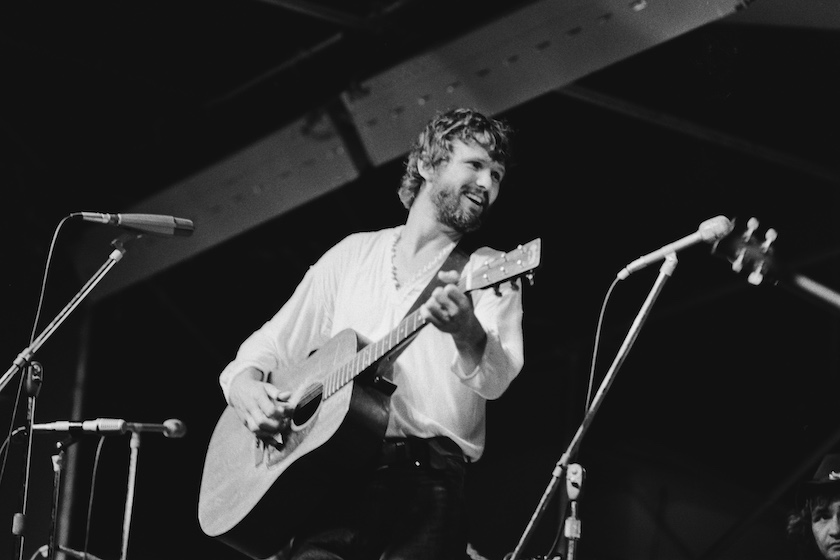
Don Paulsen/Michael Ochs Archives/Getty Images
A lyricist of the highest order, Kris Kristofferson joined fellow future Highwaymen in setting the pace for '70s rule-breakers. In this case, he operated within the mainstream to paint a believable story that's more bawdry and honest than what got typically cranked out by the Nashville machine. Listen here.
"Cryin' These Cocksucking Tears," Lavender Country (Lavender Country, 1973)
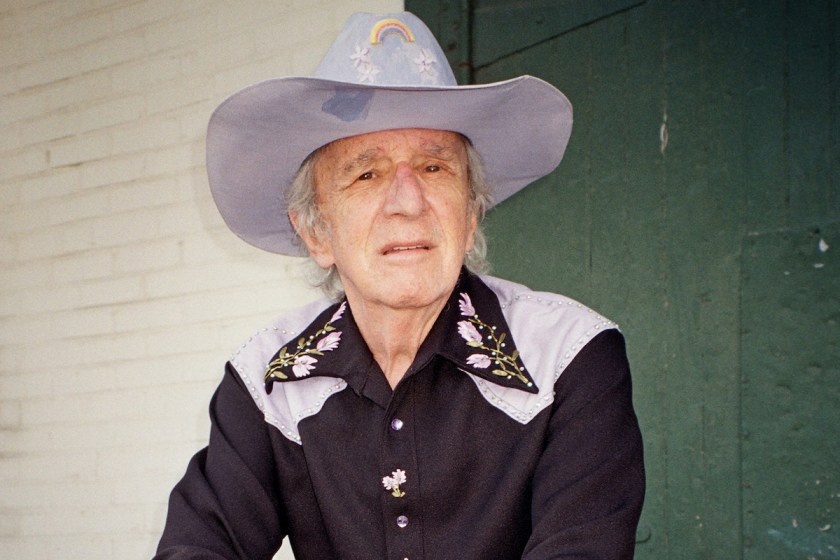
Marie Tamanova
Founder Patrick Haggerty and the other queer country foreparents in Lavender County operated on the outside of more than music business expectations. A true pioneer and hero, Haggerty made country music on his own terms, more so than anyone else on this list. After a segment of society caught up with his forward-thinking lyrics, the late Haggerty took a well-deserved 21st century victory lap as a touring and recording artist. Listen here.
"Pissin' in the Wind," Jerry Jeff Walker (Ridin' High, 1975)
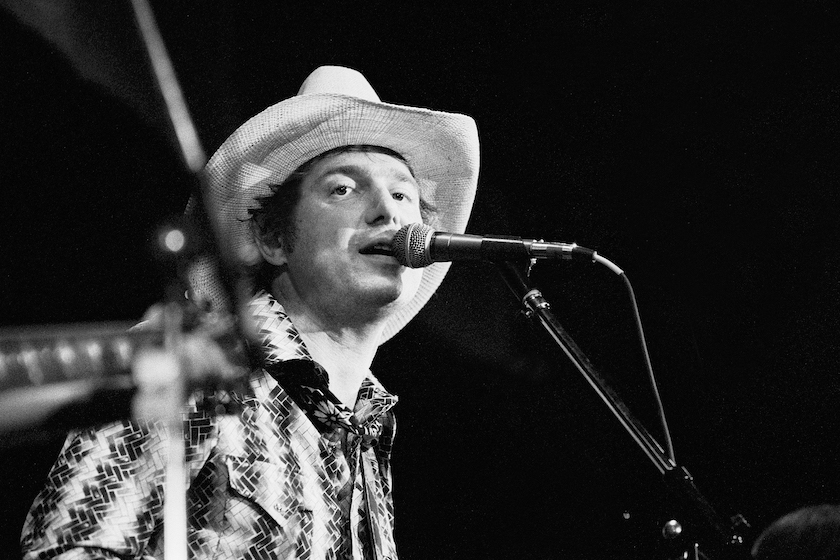
Paul Natkin/Getty Images
There's too many of Jennings and Nelson's fellow Texas renegades to list here, with examples ranging from Doug Sahm to Wade Bowen. One standout from the '70s explosion of outlaw country, Jerry Jeff Walker, represented the top-shelf songwriting of the time, often with humorous twists. Listen here.
"Rode Hard and Put Up Wet," Marshall Chapman (Me, I'm Feelin' Free, 1977)
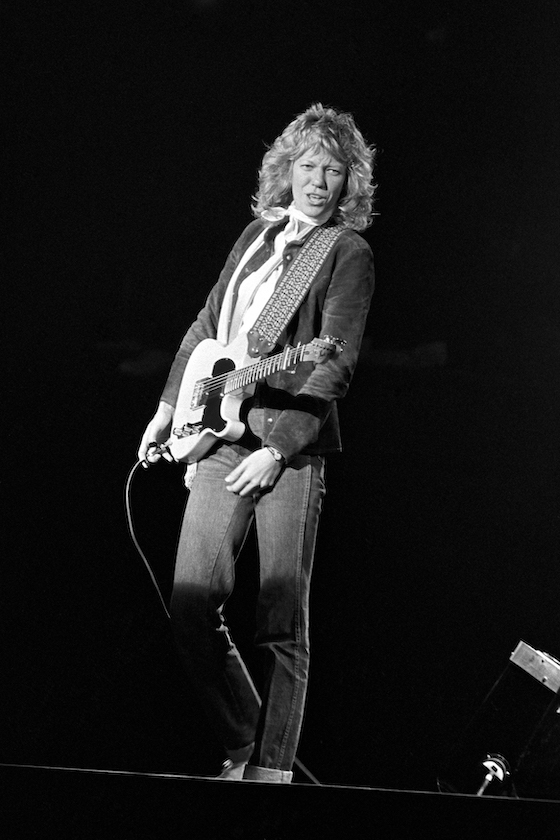
Tom Hill/WireImage
By no means was Colter the only woman riding high when "outlaw" was a mainstream buzzword. Singer, songwriter and author Marshall Chapman's mainstream debut fit the moment with its boogie-woogie swagger, risque lyrics and name drops of such outsiders as John Prine and David Allan Coe. Listen here.
"Seven Year Ache," Rosanne Cash (Seven Year Ache, 1981)
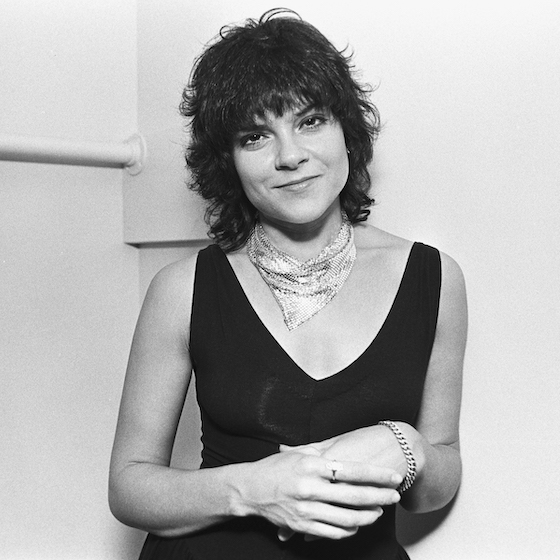
Kirk West/Getty Images
If shunning expectations as an artist qualifies one as an outlaw, Roseanne Cash deserves credit for zigging in a new wave direction when it would've been safe to zag toward the music of her famous father, Johnny Cash. Other second-generation stars have boldly broke the family business mold, as well, from Hank Williams Jr. -- aside from his early career as a glorified Hank Williams tribute act -- to Shooter Jennings. Listen to Cash here.
"Country Music Hall of Pain," Rattlesnake Annie (Rattlesnake Annie, 1987)
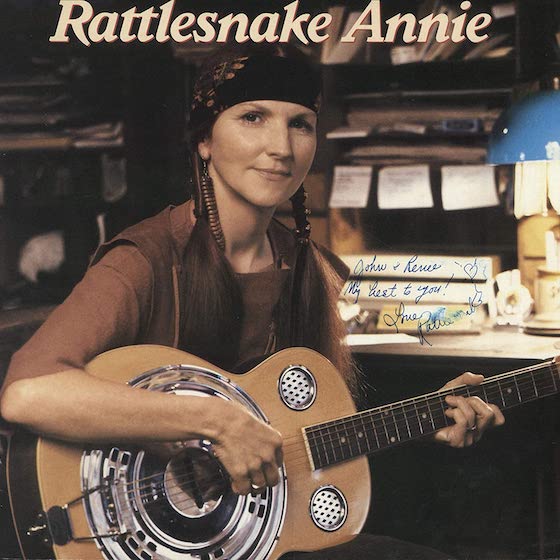
So far, more of our selections mirror Jennings the rocker-at-heart than Nelson the poet. Rattlesnake Annie is an ideal example of someone cut from the same bandana as Nelson-- though she's hardly a carbon copy. A free spirit with a heart full of socially-aware songs, Rattlesnake Annie found limited mainstream success in the states in the '80s before expanding her loyal overseas audience. Listen here.
"The Devil Made Me Do It the First Time," Billy Joe Shaver (Salt of the Earth, 1987)
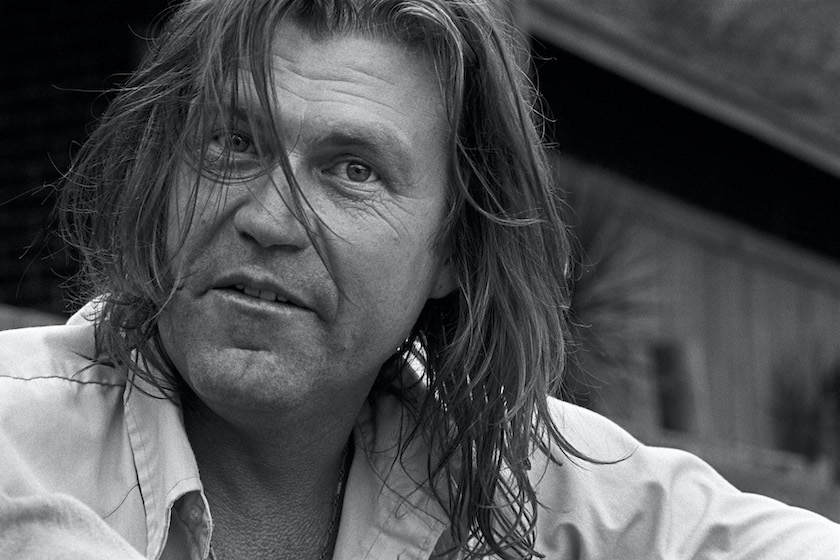
Tom Hill/Getty Images
Jennings' 1973 album Honky Tonk Heroes set the pace for outlaw country to come, in large part because all songs were written or co-written by iconic Texan Billy Joe Shaver. It was a case of a superstar signal-boosting an outsider artist-- a country equivalent of such similar good deeds as Kurt Cobain going out of his way to wear a Flipper t-shirt on Saturday Night Live. Shaver maintained an audience of his own through songs like this one until his 2020 death at age 81. Listen here.
"Snake Farm," Ray Wylie Hubbard (Snake Farm, 2006)
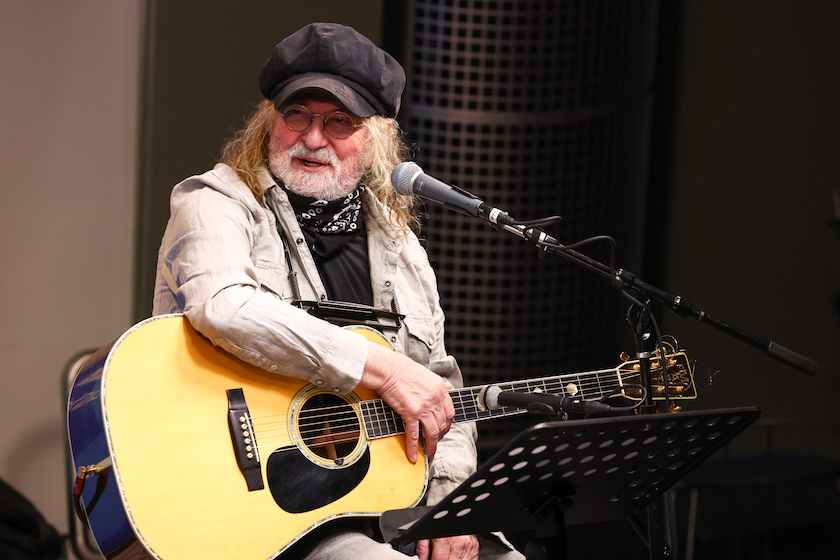
Terry Wyatt/Getty Images for SiriusXM
When defining the post-Willie and Waylon meaning of outlaw through a punk rock lens, few represent a D.I.Y. spirit in the country and Americana spaces quite like Ray Wylie Hubbard. After bad experiences in the '70s with major labels, Hubbard's family formed the independent label Misery Loves Company Records. Some of his greatest material followed and found a loyal audience in a pre-internet landscape, all without the help of Nashville, New York or Hollywood. Listen here.
"Cocaine Cowboys," Margo Price (All American Made, 2017)
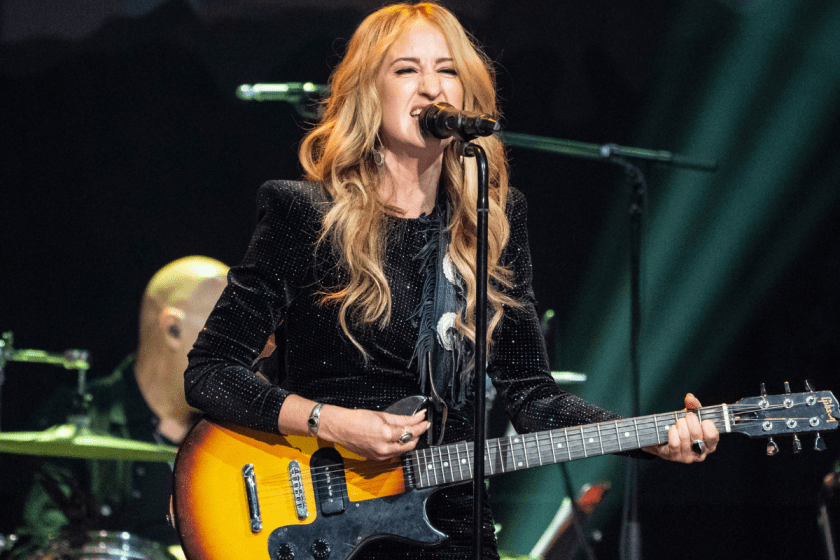
Erika Goldring/WireImage
Consideration of what 21st century music should or shouldn't be labeled as outlaw warrants another list or four. To tie the above picks together, we'll focus solely on Margo Price. Like The Carter Family, she's not afraid to sing about truths in a way that sullies country music's squeaky-clean image. She does it on her own creative terms, following the lead of Colter, Rattlesnake Annie and other proofs that the outlaw concept has never been hyper-masculine. Listen here.
